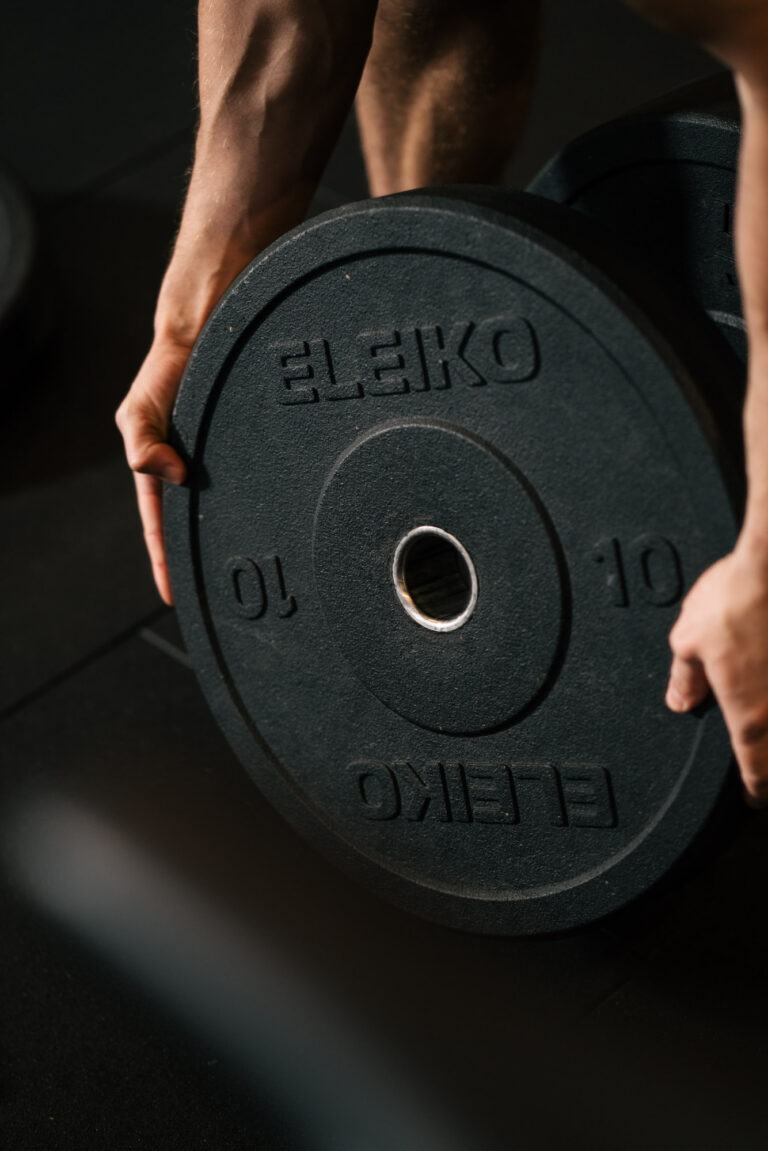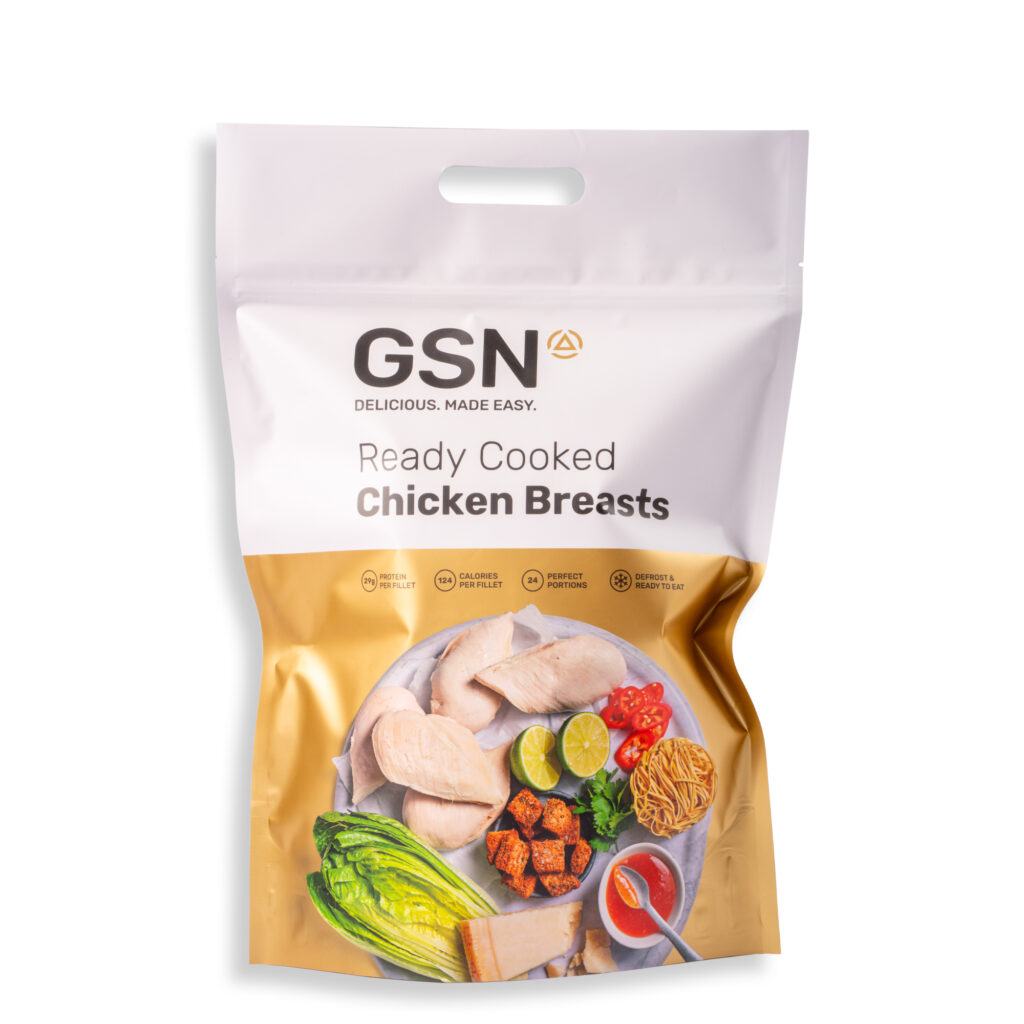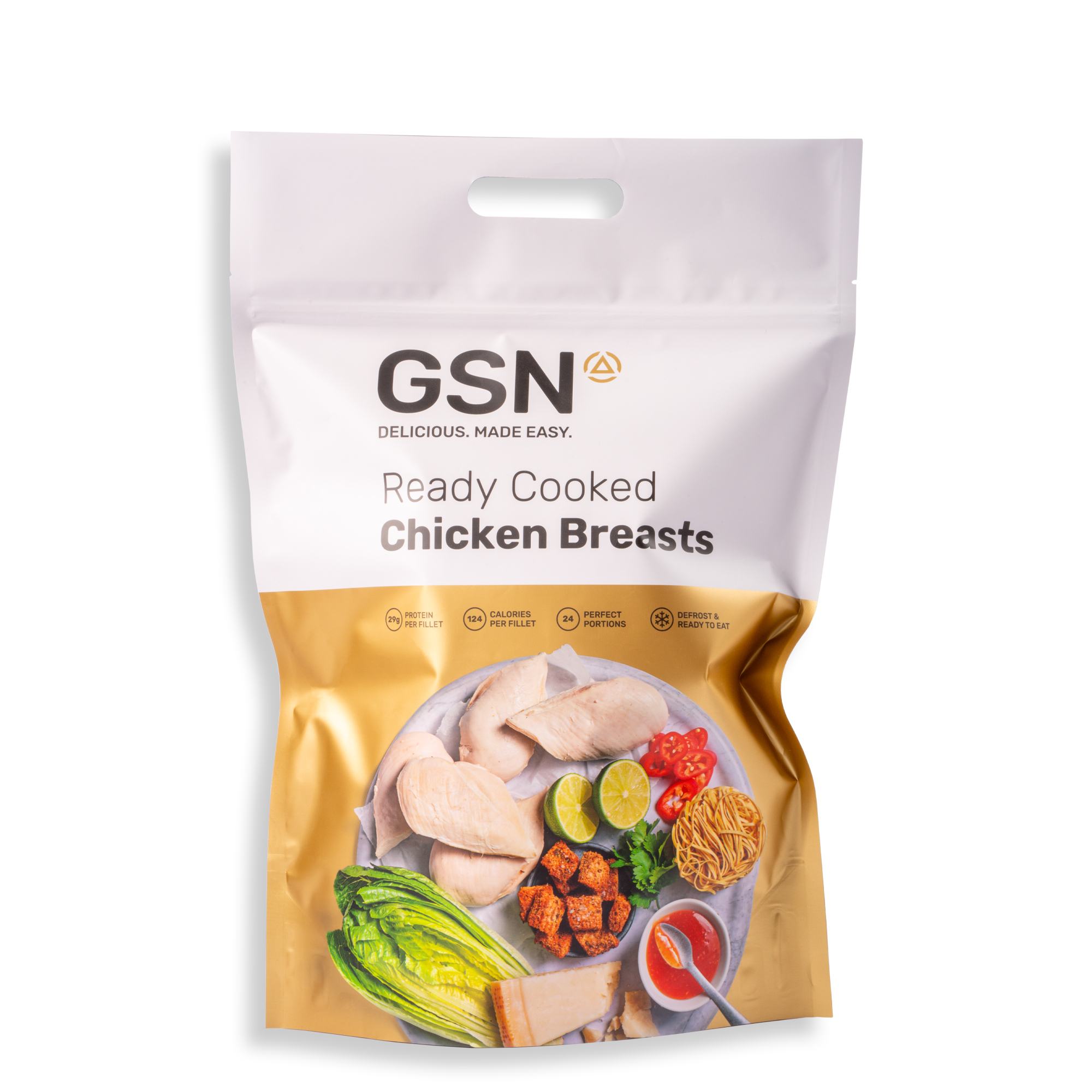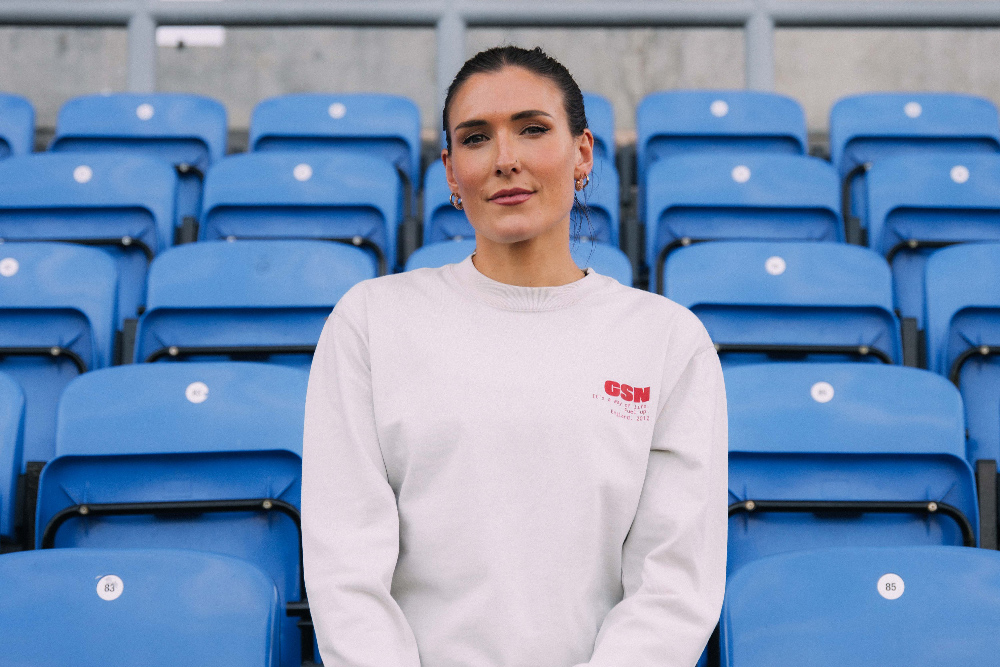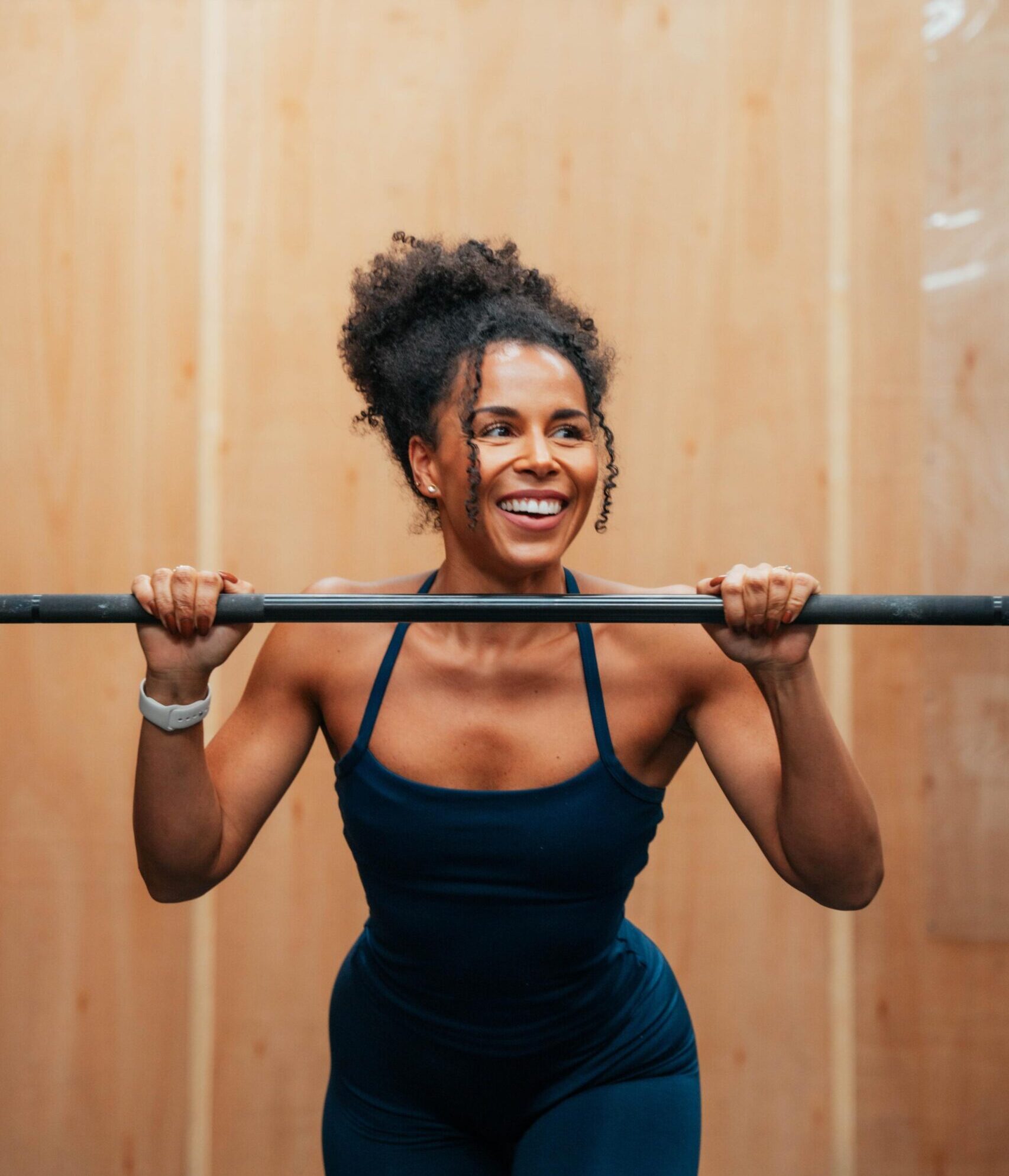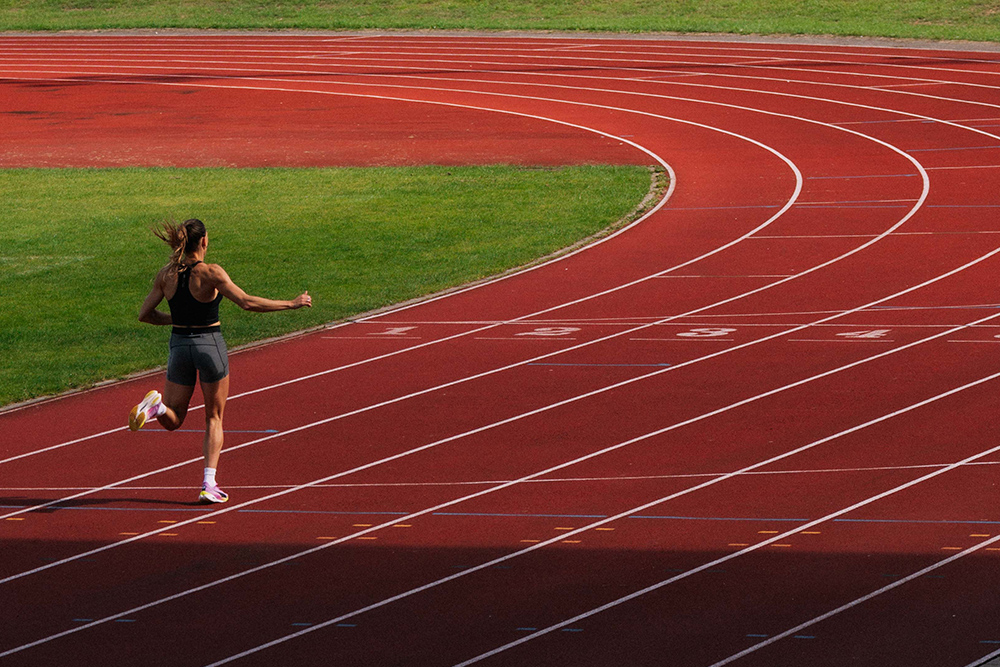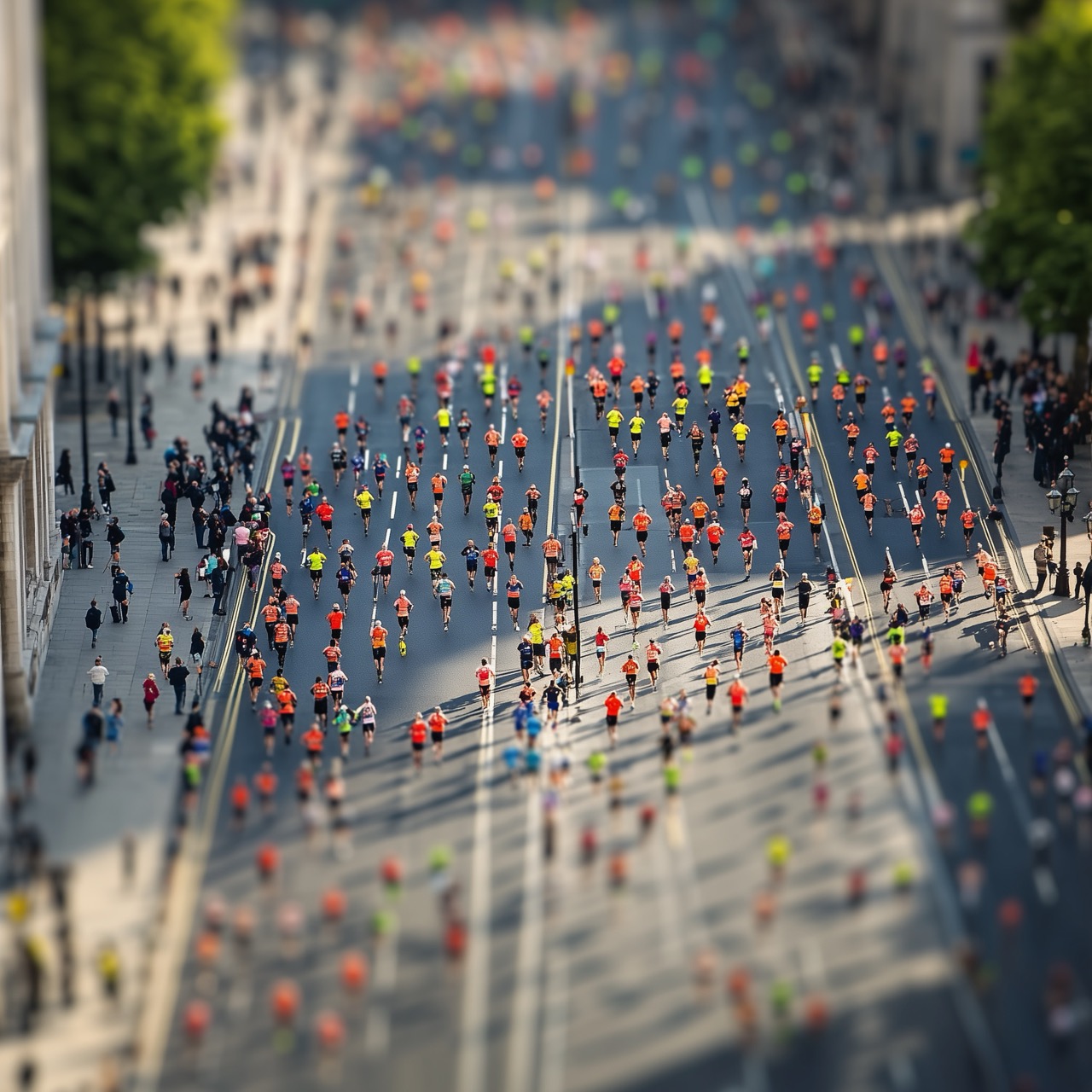Best Foods for Muscle Growth

Let’s Talk About Protein
Protein is the key nutrient for muscle growth – so you’ll hear us talk about it a lot in this article. High-protein foods contain amino acids, which are the building blocks of proteins. After you’ve eaten, amino acids from the food can join back up into proteins, which enter the muscle cells and repair damaged tissue.
This is how protein helps muscles grow larger. Every individual needs a different amount of protein each day, to suit their body, lifestyle and fitness goals.
To find out your ideal daily intake of protein (as well as carbs and fats), use our GSN Calorie Calculator. (It only takes about 60 seconds!)
The Top 10 Foods For Muscle Growth
Chicken Breast
Most nutritionists and bodybuilders agree: that chicken breast is one of the best foods for growing muscle. The key to chicken’s effectiveness is that it contains only low quantities of fat, despite being very protein-rich. 100 grams of GSN Steam-cooked Chicken Breast Fillets contains an amazing 29 grams of protein.
Chicken breasts also contain other nutrients which are needed to keep the body healthy. These include vitamins B6, which helps us store energy from food, and B12, which helps us make red blood cells and keeps the nervous system healthy. Another important nutrient contained in chicken breast is selenium, which helps to repair damaged cells and inhibits the growth of cancerous ones. Selenium also helps the thyroid to function properly, which keeps your metabolism ticking.

Salmon
Salmon is another healthy high-protein meat, with around 20g of protein for every 100g of raw salmon fillet.In addition to being high in protein, this so-called ‘king of fish’ is also rich in omega-3 fatty acids. These healthy fats can have anti-inflammatory effects, which improve blood circulation, promote muscle recovery, and – you guessed it – reduce inflammation.
Salmon is also relatively low in saturated fats, which makes it a suitable choice for keeping cholesterol levels within a healthy range. You can also get 10% of your recommended daily potassium, which prevents muscle cramps during exercise, from just 100g of salmon.

Eggs
There’s a good reason why you’ve seen videos of hardcore bodybuilders drinking raw eggs*: they’re packed with protein. One large hen’s egg has a protein content of roughly 6g – enough to get you on a roll towards your RDA. The method of cooking an egg affects the overall nutritional value of the meal. Boiled and poached eggs are particularly healthy, with no added cooking oils or fats.
Buttery scrambled eggs or fried eggs are fattier (but delicious). As well as protein, eggs also contain various healthy fats, which makes them a great all-round food for muscle growth and fitness. They can also give you essential nutrients such as vitamin B and choline.
In the intro, we talked about the building blocks of proteins: amino acids. Eggs contain a large amount of a type of amino acid called leucine, which is highly beneficial to the growth of muscles and helps to repair damaged cells.
*1 in 20,000 raw eggs contains salmonella. So maybe don’t try this at home!

Beef
Want to beef up? Try upping your beef intake. With 26g of protein per 100g of lean cut, beef is one of the most protein-rich foods you can get. The muscle growth benefits are obvious. According to research, eating lean red meat can boost the level of lean muscle gained through weight training. It contains all nine of the essential amino acidsBeef is filled with high-quality B vitamins, iron, and creatine – which helps muscles to generate energy during intensive exercise.
It also has high levels of zinc, which is important for recovery between workouts and for the development of testosterone.A 4oz cut of lean beef provides your body with approximately 50% of your RDA of B6, and 25% of your RDA of B12. Beef has a high biological value, which means it’s very digestible for the body.
As with most meats, it’s best to eat beef in moderation, owing to its relatively high cholesterol levels.

Kale
Kale is the king of vegetarian muscle growth foods! It’s all about the iron. Kale packs a generous quantity of this relatively scarce mineral, which is crucial for muscle growth and development. Iron helps the body to circulate oxygen to the muscles, assists in muscle repair after intense exercise, and promotes the creation of muscle fibres which are crucial to strength and muscle definition.
Another benefit of iron is that it can promote increased stamina during exercise, enabling you to work out longer and harder. Kale is also rich in vitamin K, which some bodybuilders take as a strength-boosting supplement.

Greek Yoghurt
Greek yoghurt is thicker, higher in protein and lower in sugar than most other varieties of yoghurt. It contains about 10g of protein per 100g – and that total is made up of both fast-digesting and slow-digesting proteins.
Research shows that the combination of fast- and slow-digesting proteins is great for building lean muscle mass. This is likely because the presence of fast-digesting proteins speeds up digestion, which can support muscle growth.

Shrimp
Shrimp is extremely high in protein, and therefore great for growing muscle. An 85g serving of shrimp contains 18g of protein, 1g of fat and zero carbohydrates. While healthy carbs and fats are crucial for an all-round healthy diet, throwing in some shrimp is a simple way to get muscle-building protein without consuming too many extra calories.
If you sometimes find yourself needing to make up your RDA of protein without taking on too much of any other macronutrient, grilling yourself a few shrimp would be a smart choice. Like several other animal proteins, shrimp contains a large amount of the amino acid leucine, which is required for optimal muscle development. And like salmon, shrimp is rich in omega-3 fatty acids – a big win for all-around body & brain health…

Tuna
Tuna is a great option for taking on lots of protein without consuming too many calories, packing 20g of protein per 85g serving. As a nice side benefit, tuna also contains plenty of vitamin A and several B vitamins, including B12, niacin, and B6. These nutrients all contribute to optimal health, energy, and exercise performance.

Peanut Butter
Peanut butter is too calorie-dense to be considered a straight-up ‘health food’, but with 8g of protein in just two tablespoons, this tasty spread can provide a handy shortcut to meeting your daily protein quota.
We suggest adding peanut butter into smoothies and oats, eating it as a dip with carrot sticks, or simply enjoying it by the spoonful for a top-up of protein, healthy fats, and nutrients.

Protein Powder
If you’re struggling to get enough protein in your diet from food alone, protein powders can help you fill the nutrition gap. Most leading brands of protein powder contain additional ingredients to enhance performance and recovery, such as creatine (which helps muscles produce more energy during high-intensity activity) and L-carnitine (an amino acid that helps the body to turn fatty acids into energy).
Tasty protein bars can play a similar role.

One last thing: don’t forget to hydrate!
Water isn’t technically a food. However, staying hydrated is crucial to supporting the whole body during exercise – which means plenty of water is a must for muscle growth. When the body is dehydrated, muscle volume can decrease due to a reduction in water volume within the cells. Meanwhile, protein is produced more slowly and breaks down faster.
Not only is hydration important for maintaining muscle mass, but it’s also essential for a healthy metabolism, brain function, joint lubrication, and flushing the body of toxins (such as lactic acid, which builds up in the muscles during training).Without enough water, the kidneys can’t function properly. When this happens, some of their workload is transferred to the liver. The liver metabolises stored fat for energy. If the liver is doing some of the kidney’s work, it burns less fat.
With all this in mind, you should be drinking at least 5.5 litres of water per day, or up to 11 litres as needed. When you’re working towards muscle growth, you’ll likely be much more active than the average person – and as a result, you’ll need a higher volume of life-giving water. If you’d like to read more about hydration, the NHS offer some great tips, here.
